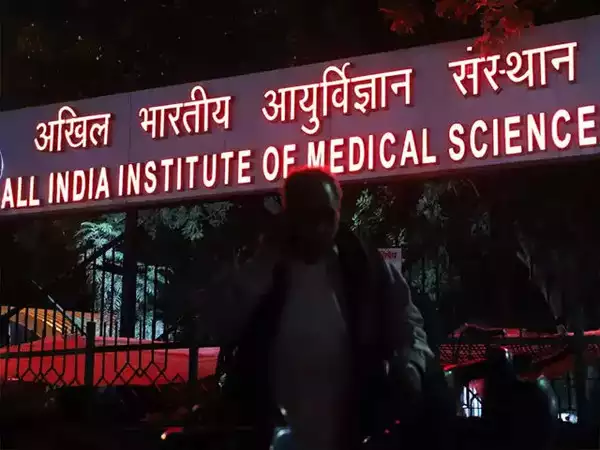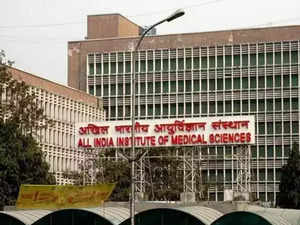AIIMS hospitals across India to have Ayush departments: Sonowal

AIIMS hospitals across India to have Ayush departments: Sonowal
The recent announcement by Union Ayush Minister Sarbananda Sonowal regarding the establishment of dedicated Ayush departments in AIIMS hospitals across the country represents a significant step towards integrating traditional systems of medicine within the mainstream healthcare infrastructure. Sonowal’s statement, made during a conference on Ayurveda and a regional review meeting of Ayush in Haryana’s Panchkula, emphasizes the government’s commitment to promoting holistic healthcare practices and leveraging the benefits of traditional medicine to enhance the well-being of the populace.
The decision to incorporate dedicated Ayush departments in AIIMS hospitals, as well as in various other healthcare facilities at different administrative levels, underscores the recognition of the complementary role played by Ayurveda, Yoga, Naturopathy, Unani, Siddha, and Homeopathy in augmenting the overall healthcare ecosystem. This move reflects the government’s emphasis on harnessing the potential of traditional knowledge systems and indigenous practices to address contemporary health challenges and promote a holistic approach to wellness and preventive care.

Sonowal’s acknowledgment of India’s progress in revitalizing the ancient wisdom and inherent advantages of traditional medicine, under the visionary leadership of Prime Minister Narendra Modi, underscores the significance of preserving and promoting India’s rich heritage in healthcare and wellness. The government’s focus on integrating traditional systems of medicine with modern healthcare practices reaffirms the commitment to providing accessible and inclusive healthcare services to all segments of the population, fostering a comprehensive and integrated approach to health and well-being.
The acknowledgment by Union Ayush Minister Sarbananda Sonowal of the growing prominence and global acceptance of the Ayush system of medicine reflects the significant strides made in promoting the holistic principles of traditional medicine and wellness. Sonowal’s recognition of the efforts of Prime Minister Narendra Modi in advancing the cause of Ayush over the past nine years underscores the government’s commitment to revitalizing India’s traditional knowledge systems and promoting their integration within the global healthcare landscape.
Sonowal’s emphasis on the development of an organized Ayurveda ecosystem at the global level, encompassing education, research, products, and services, highlights the multifaceted approach being undertaken by the Ministry of Ayush to promote the broader adoption and recognition of Ayurveda and other traditional systems of medicine worldwide. The promotion of entrepreneurship and the encouragement of startups focusing on the commercial production of Ayurvedic products related to agriculture, horticulture, and veterinary medicine underscore the potential for economic growth and self-sufficiency within the country’s healthcare and wellness sector.
The call for fostering a culture of innovation and enterprise within the Ayush domain, as articulated by Sonowal, signifies the government’s commitment to leveraging traditional knowledge and indigenous practices as drivers of economic development and self-reliance. The encouragement of entrepreneurial initiatives within the Ayush sector not only contributes to the diversification of the economy but also reinforces the position of India as a global leader in traditional medicine and holistic wellness, further strengthening the nation’s standing in the international healthcare arena.

Union Ayush Minister Sarbananda Sonowal’s emphasis on the pivotal role of Ayush in driving the vision of ‘Atmanirbhar Bharat’ during India’s Amrit Kaal signifies the profound potential of traditional systems of medicine in contributing to the nation’s self-reliance and holistic well-being. Sonowal’s call to the youth to embrace the Ayush sector as a means to serve humanity underscores the critical importance of fostering a culture of innovation, entrepreneurship, and social responsibility within the domain of traditional medicine and holistic wellness.
The regional review meeting of Ayush, chaired by Sonowal, under the National Ayush Mission (NAM) for various states including Haryana, Chandigarh, Delhi, Himachal Pradesh, Jammu and Kashmir, Ladakh, Punjab, and Uttarakhand, reflects the concerted efforts being made to strengthen and enhance Ayush healthcare services across the country. The NAM’s vision and objectives, aimed at expanding the reach and accessibility of Ayush healthcare facilities, underscore the government’s commitment to promoting inclusive and integrated healthcare services that encompass traditional and modern medical practices.
The request made by Punjab Health Minister Balbir Singh for a national Institute of Ayurveda in Punjab during the meeting highlights the growing recognition of the significance of Ayurveda and traditional systems of medicine in fostering a comprehensive and holistic approach to healthcare delivery. The establishment of dedicated institutes and centers of excellence in Ayush across different states serves as a testament to the government’s commitment to promoting the growth and development of the Ayush sector, thereby reinforcing its position as an integral component of the country’s healthcare infrastructure and wellness ecosystem.
The proactive stance taken by Punjab Health Minister Balbir Singh in advocating for the establishment of a National Institute of Ayurveda in Punjab, with the intention of transforming it into an Ayurvedic Teachers’ Training Institute, reflects the state’s commitment to promoting the growth and development of Ayurveda and traditional systems of medicine within its healthcare framework. The recognition of Ayurveda as a vital component of the healthcare sector underscores the potential for integrating traditional knowledge systems with modern healthcare practices, thereby enriching the overall health and wellness landscape within the state.
The selection of the theme ‘Ayurveda for One Health’ for the upcoming Ayurveda Day, slated to be celebrated on November 10, highlights the holistic and integrated approach that Ayurveda offers in addressing contemporary health challenges and promoting overall well-being. The emphasis on integrating Ayurveda into one’s lifestyle, as emphasized by Minister of State for Ayush Munjpara Mahendrabhai, underscores the transformative potential of Ayurveda in enhancing the delivery of healthcare services and fostering a comprehensive and inclusive approach to public health.
The conclusion of the month-long global campaign organized by the Ministry of Ayush, centered around the message of ‘Ayurveda for One Health,’ signifies the collaborative efforts being undertaken to raise awareness and promote the integration of Ayurveda within the broader context of global health initiatives. The campaign’s focus on advocating for holistic wellness and preventive healthcare through the adoption of Ayurvedic practices reinforces the importance of promoting a culture of holistic well-being and sustainable health practices, aligning with the overarching goal of advancing public health and promoting a healthier and more resilient society.
The extensive participation and engagement of millions of individuals from around the world in the month-long global campaign organized by the Ministry of Ayush underscores the widespread recognition and acceptance of Ayurveda as a holistic and integrated system of medicine promoting the well-being of humans, animals, plants, and the environment. The campaign’s focus on raising awareness about the unique benefits of Ayurveda in fostering comprehensive health and wellness has not only contributed to a broader understanding of traditional healing practices but has also emphasized the interconnectedness of human health with the environment and all living beings.
The organization of the ‘Ayurveda Mahaparva’ expo, coupled with the review meeting of the National Ayush Mission (NAM) for the eight participating states, signifies the collective efforts being made to promote and showcase the diverse range of Ayurvedic products, innovations, and advancements within the Ayurveda sector. The active participation of Ayurveda product manufacturers, startups, and professionals from across the country highlights the vibrancy and dynamism within the Ayurveda ecosystem, showcasing the innovative strides being made to integrate traditional knowledge with modern advancements in healthcare and wellness.
The review meeting of the NAM, aimed at assessing the progress and activities undertaken by the participating states, underscores the Ministry of Ayush’s commitment to promoting effective coordination and collaboration among the states to ensure the successful implementation and impact of the National Ayush Mission. The emphasis placed on leveraging the collective efforts of all states in advancing the goals and objectives of the NAM reflects the shared commitment to promoting the accessibility and affordability of Ayush healthcare services, thereby fostering a culture of holistic wellness and sustainable health practices for all segments of the population.




